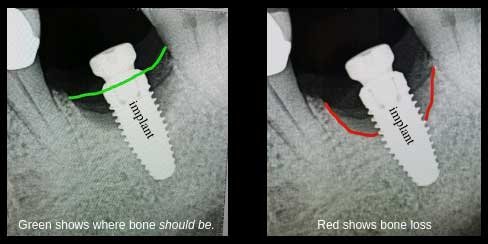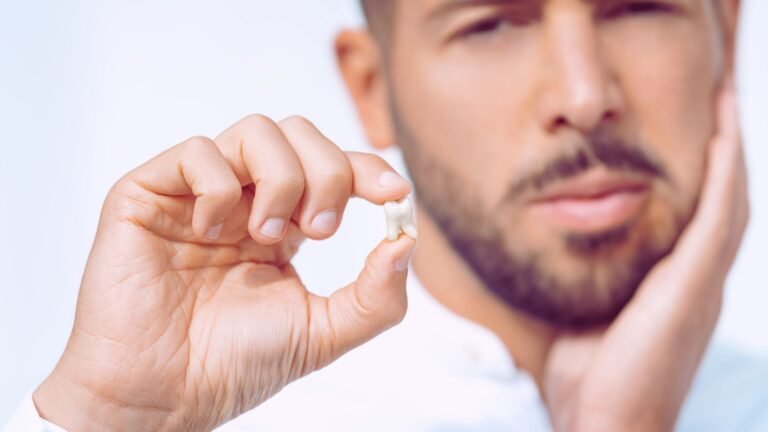How to Reduce Swelling After Dental Work: Expert Tips and Tricks
Apply an ice pack to the swollen area for 15-20 minutes. Keep your head elevated to reduce swelling.
Swelling after dental work is common but manageable. Ice packs can significantly reduce inflammation when applied promptly. Elevating your head while sleeping or resting helps decrease fluid buildup in the affected area. Drinking plenty of water and maintaining a soft diet can also ease discomfort.
Avoid strenuous activities and smoking, as they can exacerbate swelling. Over-the-counter anti-inflammatory medications, like ibuprofen, can provide relief. Follow your dentist’s post-procedure instructions closely to ensure a speedy recovery. Consistent care and these simple steps can help you manage swelling effectively after dental procedures.
Causes Of Swelling
Swelling after dental work can be uncomfortable. Understanding the causes can help manage it better. Below, we explore the common triggers and the role of post-procedure inflammation.
Common Triggers
Several factors can cause swelling after dental procedures. Here are the most common triggers:
- Trauma to the Tissue: Dental tools can irritate your gums and cheeks.
- Infection: Bacteria can enter the surgical site, causing swelling.
- Allergic Reaction: Your body may react to materials used during the procedure.
Post-procedure Inflammation
Inflammation is the body’s natural response to injury. It helps to heal the area. After dental work, your body sends blood and immune cells to the site. This process can cause swelling. Below is a table that shows the typical timeline of post-procedure inflammation:
| Time After Procedure | Inflammation Level |
|---|---|
| First 24 hours | High |
| 24-48 hours | Moderate |
| 3-7 days | Low |
Swelling usually peaks in the first 24 hours. It starts to decrease after 48 hours. By the end of the week, the swelling should be minimal.
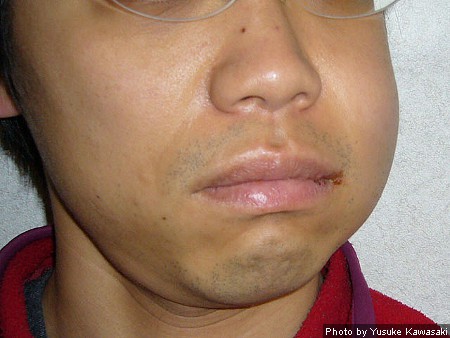
Credit: www.oralanswers.com
Immediate Actions
After dental work, swelling can cause discomfort. Taking immediate actions can help reduce swelling and speed up recovery. Here are some effective steps you can take right away.
Cold Compress
Applying a cold compress can significantly reduce swelling. Use an ice pack or a bag of frozen peas. Wrap it in a thin cloth to avoid direct contact with your skin.
Hold the cold compress against the swollen area for 15-20 minutes. Take a break for 20 minutes before applying again. Repeat this process several times a day for the first 48 hours.
Cold compresses help numb the area and reduce blood flow. This can lessen swelling and ease pain.
Elevating The Head
Elevating your head can also help reduce swelling. Use extra pillows when you sleep or rest. Keeping your head above heart level allows fluids to drain away from the swollen area.
During the day, try to sit up rather than lying flat. This will help keep swelling to a minimum.
Proper elevation helps prevent fluids from pooling in the affected area. This can speed up your recovery.
| Immediate Action | Benefits |
|---|---|
| Cold Compress | Reduces blood flow, numbs area |
| Elevating the Head | Prevents fluid buildup, reduces swelling |
Following these immediate actions can greatly help in managing swelling. Ensure you stay consistent for the best results.
Medications
Medications can help reduce swelling after dental work. They ease pain and inflammation. This section covers both over-the-counter and prescription options.
Over-the-counter Options
Over-the-counter medications are accessible and effective. Some common choices include:
- Ibuprofen (Advil, Motrin): Reduces pain and swelling.
- Acetaminophen (Tylenol): Eases pain but does not reduce swelling.
- Aspirin: Helps with pain and swelling but may cause bleeding.
Always follow the dosage instructions on the packaging. Do not mix medications without consulting your dentist.
Prescription Solutions
For severe swelling, your dentist may prescribe stronger medications. These might include:
- Stronger NSAIDs: More potent than over-the-counter options.
- Steroids: Such as prednisone, to reduce inflammation quickly.
- Antibiotics: To prevent or treat infections causing swelling.
Take all prescribed medications exactly as directed. Inform your dentist of any allergies or side effects.
Using the right medications can make recovery smoother. Always consult your dentist for personalized advice.
Home Remedies
Experiencing swelling after dental work is common. Luckily, there are several home remedies that can help reduce this discomfort. These methods are simple and use ingredients you likely already have at home.
Saltwater Rinse
A saltwater rinse is an effective way to reduce swelling. Salt has natural healing properties that can help soothe the affected area.
- Mix 1 teaspoon of salt in a glass of warm water.
- Swish the solution in your mouth for 30 seconds.
- Spit it out and repeat 2-3 times daily.
This simple remedy helps to clean the wound and reduce inflammation.
Herbal Treatments
Herbal treatments can be a natural way to alleviate swelling. Various herbs possess anti-inflammatory properties.
- Chamomile tea: Brew a cup and let it cool. Use it as a mouth rinse.
- Turmeric paste: Mix turmeric powder with water to form a paste. Apply it gently on the swollen area.
- Clove oil: Dab a small amount on a cotton ball and apply it to the affected area.
These herbal remedies can provide relief and promote healing.
Dietary Adjustments
Dietary adjustments play a crucial role in managing swelling after dental work. What you eat can either help or hinder your recovery. Making the right choices can speed up the healing process and reduce discomfort.
Soft Foods
Soft foods are easier to chew and less likely to irritate your gums. They also help to minimize jaw movement, which can reduce swelling. Here are some options:
- Mashed potatoes
- Yogurt
- Scrambled eggs
- Applesauce
- Broth-based soups
Avoid foods that are hard or crunchy. These can aggravate the surgical site. Stick to a soft food diet for at least a few days.
Avoiding Irritants
Certain foods and drinks can irritate the surgical area and worsen swelling. Avoiding these irritants is crucial for a smooth recovery:
- Spicy foods: Can cause burning and irritation.
- Acidic foods: Such as citrus fruits and tomatoes.
- Alcohol: Can dehydrate you and slow down healing.
- Hot beverages: Such as coffee and tea.
Staying away from these irritants helps your body focus on healing. Drink plenty of water to stay hydrated and support recovery.
Hydration Importance
Staying hydrated can help reduce swelling after dental work. Proper hydration supports your body’s healing process. It helps in flushing out toxins and reducing inflammation. Below are key tips to maintain good hydration.
Water Intake
Drinking enough water is crucial after dental work. Aim to drink at least eight glasses a day. Water helps in keeping your tissues hydrated. It also aids in flushing out harmful bacteria from your mouth.
Here’s a simple table to track your daily water intake:
| Time | Water Intake (oz) |
|---|---|
| Morning | 16 oz |
| Afternoon | 16 oz |
| Evening | 16 oz |
| Night | 16 oz |
Avoiding Alcohol
Avoiding alcohol after dental work is essential. Alcohol can dehydrate your body. Dehydration can increase swelling and delay healing. Alcohol can also interfere with medications prescribed by your dentist. It’s best to stick to water and other non-alcoholic drinks.
Here are some alternatives to alcohol:
- Herbal teas
- Fruit-infused water
- Electrolyte drinks
Stay hydrated and make healthy drink choices. This will help your recovery process.
When To Seek Help
After dental work, swelling is common. Sometimes, you need to seek help. Knowing when to seek help can prevent complications. Look out for these signs.
Signs Of Infection
Swelling can signal an infection. Signs of infection include:
- Severe pain
- Fever above 100.4°F
- Redness or warmth around the area
- Pus or foul smell
If you notice these signs, contact your dentist. Infections need prompt treatment.
Persistent Swelling
Normal swelling should reduce within a few days. Persistent swelling beyond this time is a concern. Here are some things to consider:
| Time Period | Action |
|---|---|
| 1-3 days | Normal, apply ice packs |
| 4-7 days | Should reduce, use warm compresses |
| Beyond 7 days | Consult your dentist |
Persistent swelling can indicate complications. Always follow your dentist’s advice.
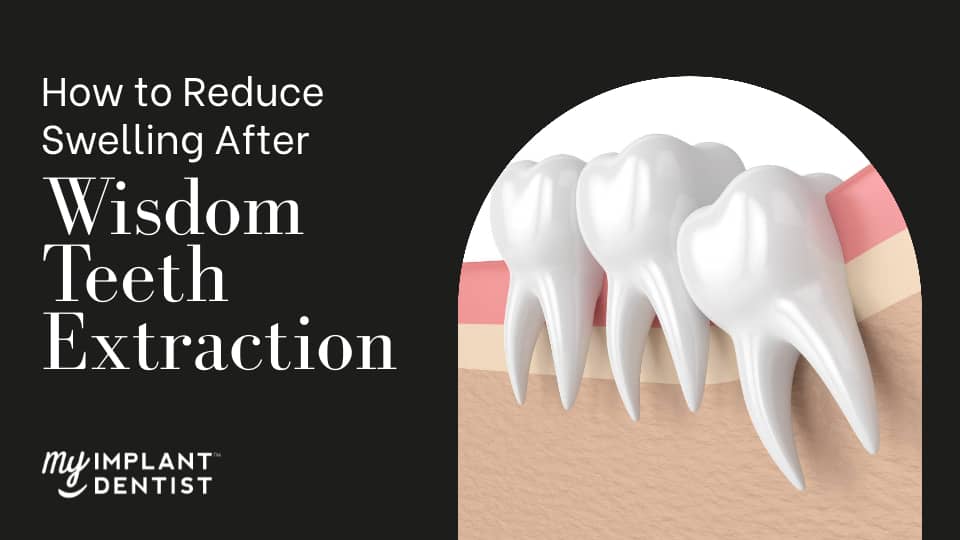
Credit: myimplantdentist.com.au
Preventive Measures
Swelling after dental work can be uncomfortable. Taking preventive measures can help reduce it. Following simple steps before and after the procedure can make a big difference.
Pre-procedure Tips
Before your dental appointment, prepare yourself with these tips:
- Stay Hydrated: Drink plenty of water. This helps your body stay healthy.
- Avoid Alcohol: Do not drink alcohol. It can increase swelling.
- Rest Well: Get a good night’s sleep. Your body heals better when rested.
- Eat Light: Have a light meal before the procedure. Avoid heavy, spicy foods.
Post-procedure Care
After your dental work, follow these steps to reduce swelling:
- Apply Ice: Use an ice pack on the swollen area. Apply it for 20 minutes. Repeat every hour.
- Keep Your Head Elevated: Use extra pillows when lying down. This helps reduce swelling.
- Avoid Strenuous Activity: Rest and avoid heavy exercise. Let your body heal.
- Follow Dentist’s Instructions: Take prescribed medications. Follow all care instructions given by your dentist.
These preventive measures can make a big difference in your recovery. Always consult your dentist for personalized advice.
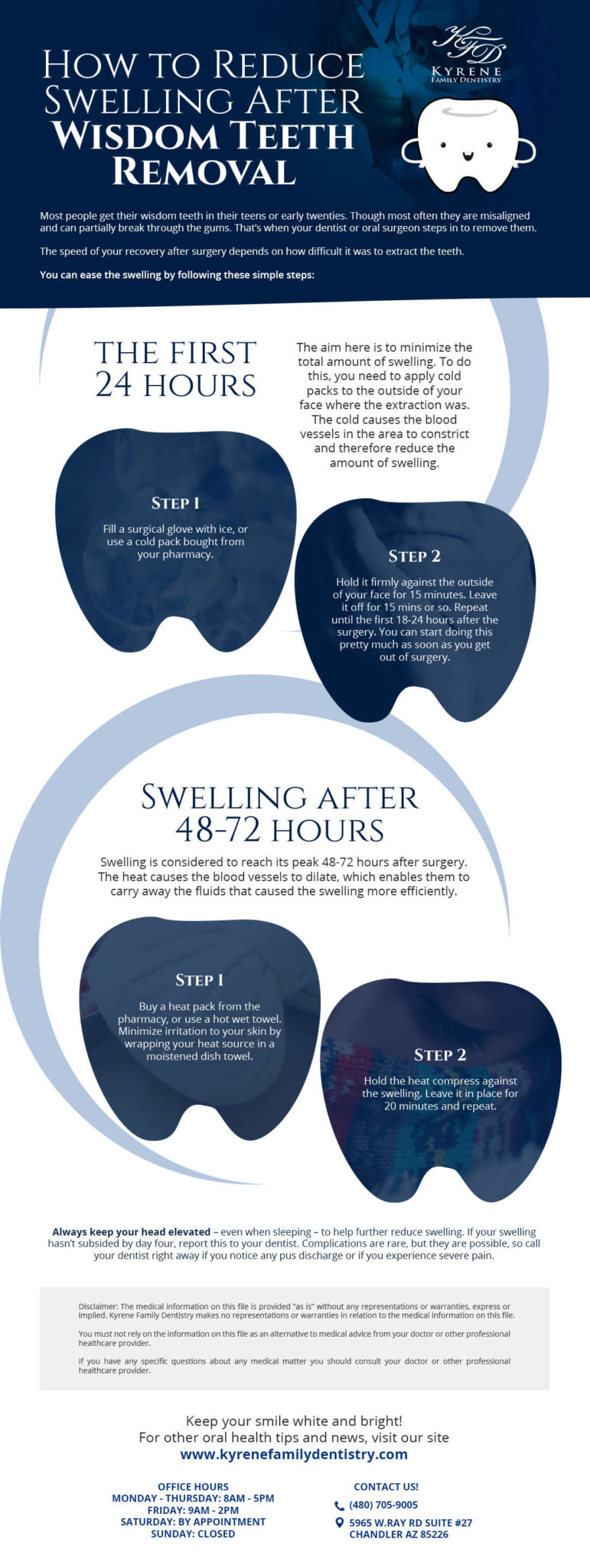
Credit: www.kyrenefamilydentistry.com
Frequently Asked Questions
How Long Does Swelling Last After Dental Work?
Swelling after dental work usually lasts 2 to 3 days. It gradually decreases within a week. Apply ice packs and follow your dentist’s advice for quicker recovery.
How Do You Reduce Facial Swelling After Dentist?
Apply ice packs to the swollen area for 15 minutes. Elevate your head while sleeping. Drink plenty of water. Avoid hot foods and beverages. Follow your dentist’s aftercare instructions.
How To Make Swelling Go Down After Oral Surgery?
Apply ice packs to reduce swelling. Keep your head elevated while resting. Take prescribed anti-inflammatory medications. Rinse with saltwater gently. Follow your dentist’s post-operative care instructions.
How Long Does It Take For Dental Swelling To Go Down?
Dental swelling typically subsides within 1 to 3 days. Severe cases may take up to a week. Always consult your dentist.
Conclusion
Taking simple steps can significantly reduce swelling after dental work. Use ice packs, stay hydrated, and follow your dentist’s advice. These actions promote faster healing and comfort. By being proactive, you ensure a smoother recovery process. Always prioritize your oral health for better overall well-being.
